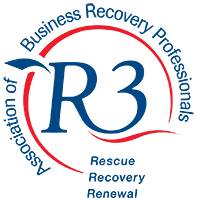Will having an IVA affect my future employment?
When deciding whether an IVA is the right debt solution is right for you, it’s important to consider how it could affect your day-to-day life.
One of the biggest concerns people often have is that an IVA could affect their employment.
The good news is that having an IVA won’t affect most jobs but you should be aware of some exceptions.
Here we offer a guide to how an IVA could affect your employment now and in the future.
Will an IVA affect my job?
Entering into an IVA doesn’t typically have an impact on employment, however, there are a few exceptions.
There are some jobs – often in the financial sector – that could be impacted by an IVA.
You should be aware that IVA could impact your career if you work in any of the following industries:
- Financial services
- Accountancy
- Legal
- Property conveyancing
- Police
- Prison service
You may not be able to continue to practice or your roles and responsibilities may change if you enter an IVA.
That’s why it’s important to check if your role could be affected by the arrangement. You can do this by checking the terms and conditions of your employment contract, speaking with your HR department or asking your trade union or professional body.
Will my employer find out about my IVA?
Your employer can only find out about your IVA in certain circumstances.
They may carry out financial checks, such as a credit check, but you must be made aware of it in advance. You should also check your contract to make sure your employer has the right to do so.
An employer could also search the public Insolvency Register – a list of all active IVAs in the UK – but this is rare. Your details will appear on the register for the duration of your IVA and three months after its completion.
Can an IVA affect me in finding a job?
An IVA isn’t likely to affect you if you’re applying for the job unless you work in the sectors we’ve previously mentioned.
Most employers don’t run the types of credit searches that would show an IVA but it’s always best to check when applying.
It’s also important to remember that credit checks are more likely if you’re applying for a role where you’re able to access other people’s money – like working in a bank, for example.
You should also remember that prospective lawyers are legally required to ask for permission in advance before running a credit check.
How else will an IVA impact my life going forward?
The biggest impact an IVA will have going forward is by negatively impacting your credit rating, usually for a period of six years.
While that might sound daunting, it’s important to remember two things. First, while an IVA might hurt your credit score in the short-term, it will do a lot less damage to your credit overall than allowing your debts to grow, or defaulting on your repayments.
Next, the damage to your credit rating is only temporary. As soon as six years pass, your IVA will be wiped from your credit history.
Parkfield Insolvency will not charge you a fee for initial information and signposting. If you were to proceed and implement a recommended debt solution where fees are applicable, full details will be provided before setting up. Parkfield Insolvency proposes and administers Individual Voluntary Arrangements (IVAs). Advice is provided on the basis that there is reasonable contemplation of an insolvency appointment, once it is apparent that an IVA is likely to be the most appropriate debt solution. The debt solutions offered by Parkfield Insolvency Limited only apply to residents of England, and Wales.
Parkfield Insolvency is a trading style of Parkfield Insolvency Limited, Company Number 14371483, registered in England and Wales, at Dalton House, Cross Street, Sale, M33 7AR.
Peter Jackson is authorised by the Insolvency Practitioners Association to act as a Licensed Insolvency Practitioner.
To qualify for an IVA with Parkfield Insolvency, you must have a minimum of £6,000 of qualifying unsecured debt owed to two or more creditors
There is potentially a debt write off in some IVAs. However, the amount of debt written off differs for each customer depending upon their individual financial circumstances and is subject to the approval of their creditors.
Data Protection Act Registration Number – ZB399874. To find out more about managing your money and getting free advice, visit Money Helper, an independent service set up to help people manage their money.
All Rights Reserved | Parkfield Insolvency Ltd


